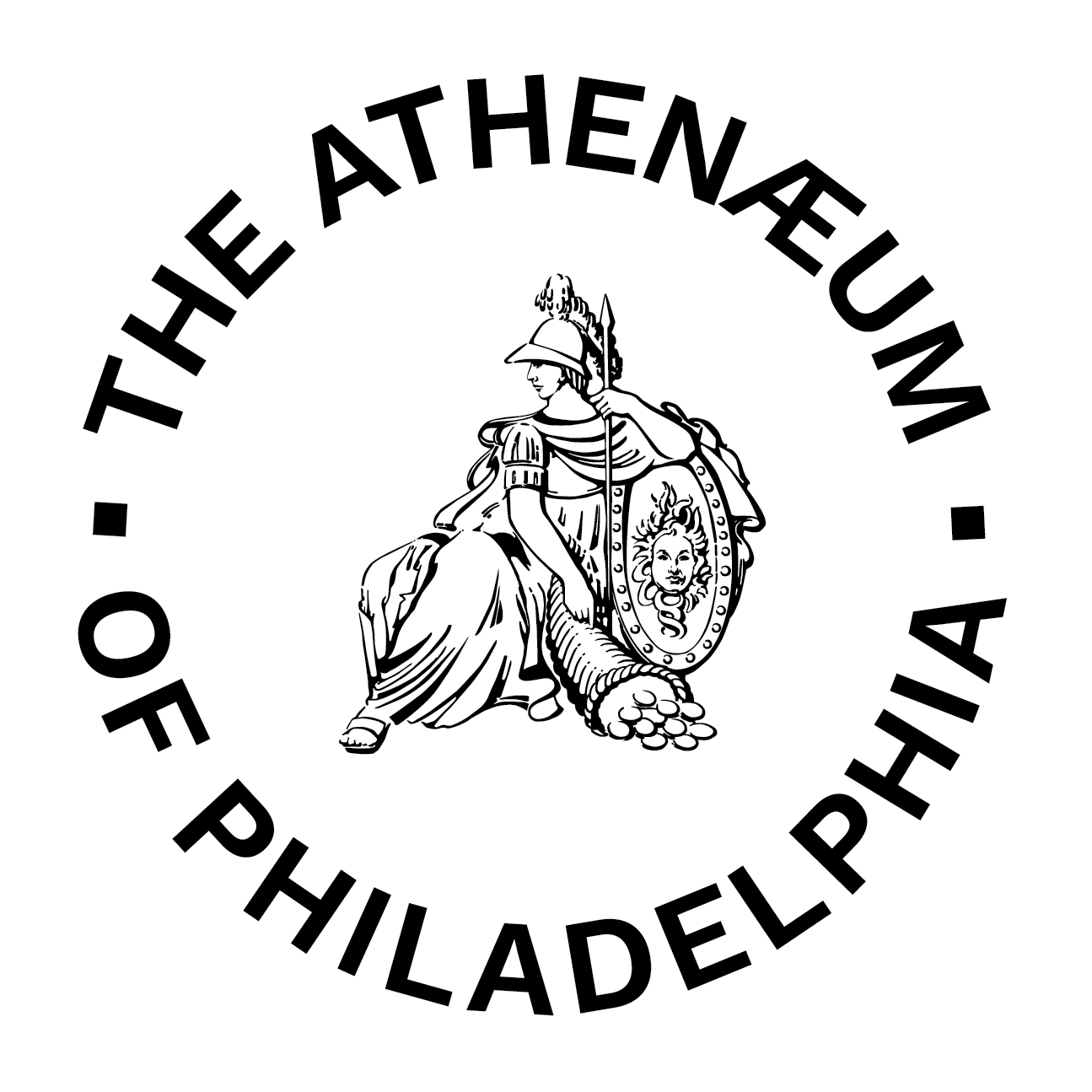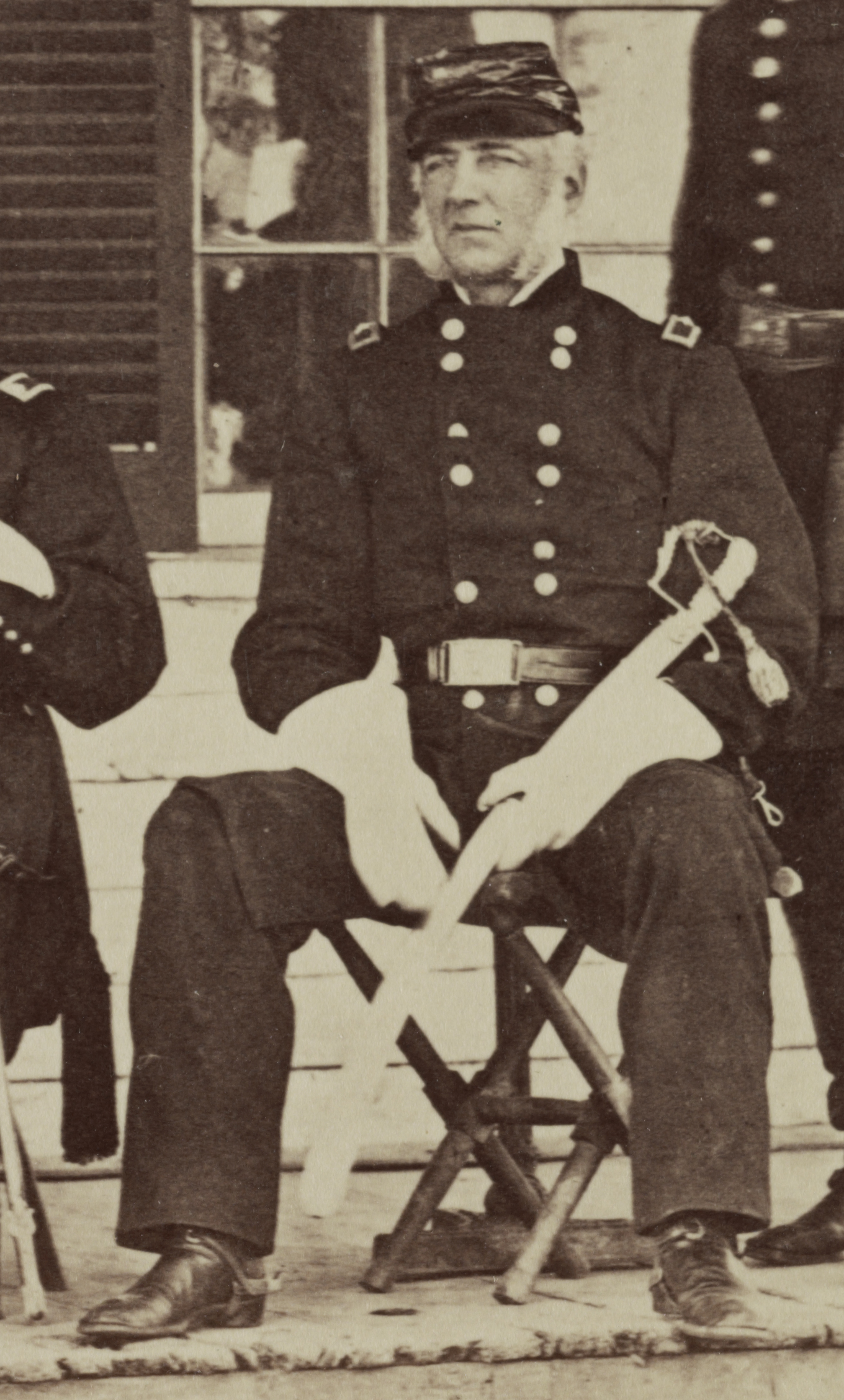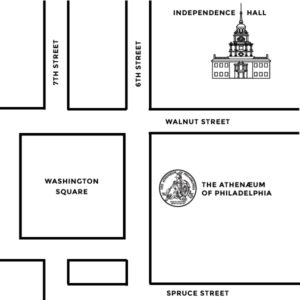
(signed in by W [William] McIlvaine)
Tuesday February 8, 1848
Athenaeum
Politics, Diplomacy & Law
Business
Occupation: Diplomat
Residence: Cape of Good Hope
RECORD OF STRANGERS IMAGE
Volume 5
Isaac Chase
Isaac Chase was an American diplomat. He served as the U.S. Consul in Cape Town, South Africa from 1834 to 1851. While there, Chase also served as a director of the South African Bank and the Cape of Good Hope Gas Light Company, as well as general superintendent of the South African Whaling Company.
(signed in by J. [John] C. Montgomery)
Monday February 8, 1819
Philosophical Hall
104 South Fifth Street, Independence Square, First Floor
Military
Politics, Diplomacy & Law
Occupation: Politician and Military Officer
Residence: Virginia
RECORD OF STRANGERS IMAGE
Volume 1
Isaac A. Coles, 1780 — 1841
Isaac A. Coles was an American politician and military officer. Born into a wealthy and influential family of enslavers and plantation owners in Virginia, Coles served as Thomas Jefferson's private secretary as a young man, from 1805 to 1809. He went on to serve in the army during the War of 1812, where he rose through the ranks to reach the rank of colonel. Later in life, Coles served briefly in the Virginia state legislature. His brother, Edward Coles, was a frequent visitor to the Athenaeum before becoming a shareholder. Edward is listed as the introducing member for Isaac on another visit. Isaac also visited the Athenaeum on multiple occasions.
(signed in by J. [John] C. Montgomery)
Monday February 8, 1819
Philosophical Hall
104 South Fifth Street, Independence Square, First Floor
Politics, Diplomacy & Law
Occupation: Politician
Residence: Virginia
RECORD OF STRANGERS IMAGE
Volume 1
Edward Coles, December 15, 1786 – July 7, 1868
Edward Coles was an American politician. He was born into a wealthy family of enslavers and plantation owners in Virginia. Coles studied at William and Mary College before serving as a private secretary to James Madison. In 1817, he sold his inherited plantation in Virginia and later travelled to Illinois, accompanied by 17 people that his family had enslaved. Coles later freed the enslaved people and helped them settle, and began to fight the pro-slavery movement within the Illinois government. He was elected governor in 1822, and helped ensure that Illinois remained a free state by a vote during the 1824 Constitutional Convention. Coles was also an advocate for establishing a state library in Illinois. His political career faltered after he lost multiple congressional elections, and he moved to Philadelphia in 1832. Based on the Athenaeum's records, it is believed that Coles became an Athenaeum shareholder in 1835. His name appears throughout the Record of Strangers as the introducing member for many strangers, as well as multiple times as a stranger himself.
(signed in by Sidney G [George] Fisher)
Saturday February 8, 1840
Philosophical Hall
104 South Fifth Street, Independence Square, First Floor
Military
Politics, Diplomacy & Law
Occupation: Military Officer and Politician
Residence: Geneseo [New York]
RECORD OF STRANGERS IMAGE
Volume 4
James Samuel Wadsworth, October 30, 1807 — May 8, 1864
James Samuel Wadsworth was an American military officer and politician. He came from a wealthy landowning family, and studied at Harvard and Yale before entering politics, first as a radical democrat, and later aligning himself with Lincoln's new Republican party. Upon the outbreak of the American Civil War, Wadsworth felt compelled to volunteer his services for the Union Army. He was commissioned a Major General in the New York State Militia and later promoted to Brigadier General. Wadsworth first saw combat in May of 1863, and acted briefly as commander in the Battle of Gettysburg, helping to stop the advance of Confederate forces. He would be killed in action less than a year later, during the Battle of the Wilderness in northern Virginia. Wadsworth was popular among his troops, and upon his death Fort Richmond in New York Harbor was renamed Fort Wadsworth. A monument to him also stands at Gettysburg National Battlefield. The Record of Strangers indicates that Wadsworth visited the Athenaeum on multiple occasions, including as a young man accompanied by his father, also named James Wadsworth.
Portrait courtesy of the Library of Congress — Source — Source — Source






